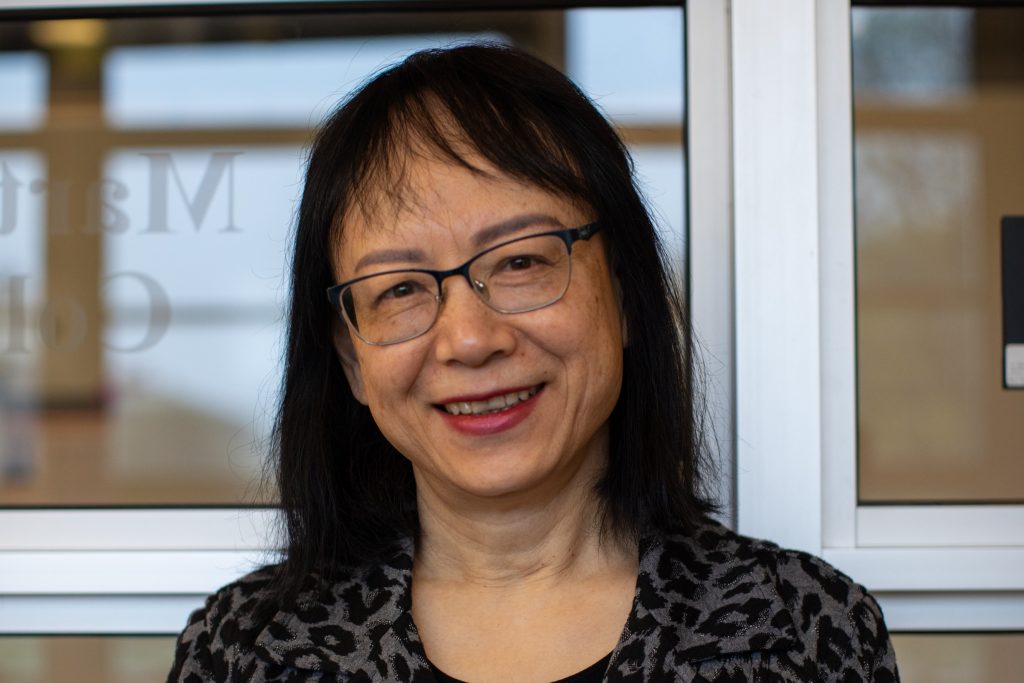Jian Qin
Jian Qin

Growing up in Liuzhou, China, Jian Qin spent most of her time reading novels lent by friends either from their family collections or salvaged during the country’s Cultural Revolution.
Qin, a professor and MLIS program director at Syracuse University’s iSchool, knew she wanted a career in reading and eventually pursued a degree in library science at Wuhan University, a school with the top library science program in China, she said. There, she became interested in scientific communication and the idea of a science research enterprise at Wuhan, when she read a report about how Americans coordinated the Manhattan Project.
“It’s fascinating because there was something I never had the chance to ever know before,” she said. “I think that opens up a whole new world to me, and I got interested. I can easily become interested in many things. I think that’s just my nature.”
In 1984, she was selected by the Chinese government to get her master’s degree at the University of Western Ontario, now called Western University. Her degree allowed her to develop her interest in information science and complete a dissertation in the narrow body of scientific research.
“I have this dream, I have this interest, and the Ph.D. program gave me the opportunity to materialize it,” she said.
To pay back her scholarship to the government, she worked as an English lecturer at Wuhan University for five years, where she met F.W. Lancaster from the University of Illinois Urbana-Champaign, a renowned scholar in the information science field who was impressed with her English skills and eventually brought her to the university on a scholarship a few years later.
Eight months later, her five-year-old son and husband joined her at UIUC. Qin said one of the reasons she wanted to bring her son to the United States with her was because he developed asthma and the doctors said he needed a change to an environment away from the copious amounts of dust in China.
“That was a time when China was building a lot of houses, apartment buildings, and businesses. And he just couldn’t escape. And sometimes late at night, he couldn’t breathe and couldn’t sleep. It broke my heart,” she said.
After working at University of Southern Mississippi as an assistant professor, she joined SU’s teaching faculty in 1999. Qin said she does miss China as she spent half of her life there, but enjoys her work at Syracuse and the friends she’s made here. She said the best part of her job is seeing her students grow intellectually.
“I love my work and love the school. I’ve got people trying to recruit me away from Syracuse, I declined because I feel Syracuse is a good place to work. I feel happy. I feel motivated here,” she said.
Qin said this past year, she’s become disappointed in people who use the coronavirus as a reason to inflict hate on Wuhan, where she went to school. She said bias and prejudice are difficult patterns to combat because they result from constant misinformation and people’s willingness to believe it.
“I think it’s a long-term fight. But I think if we take a clear stand, we can reduce and minimize this kind of bias and prejudice towards Asian people,” she said.






